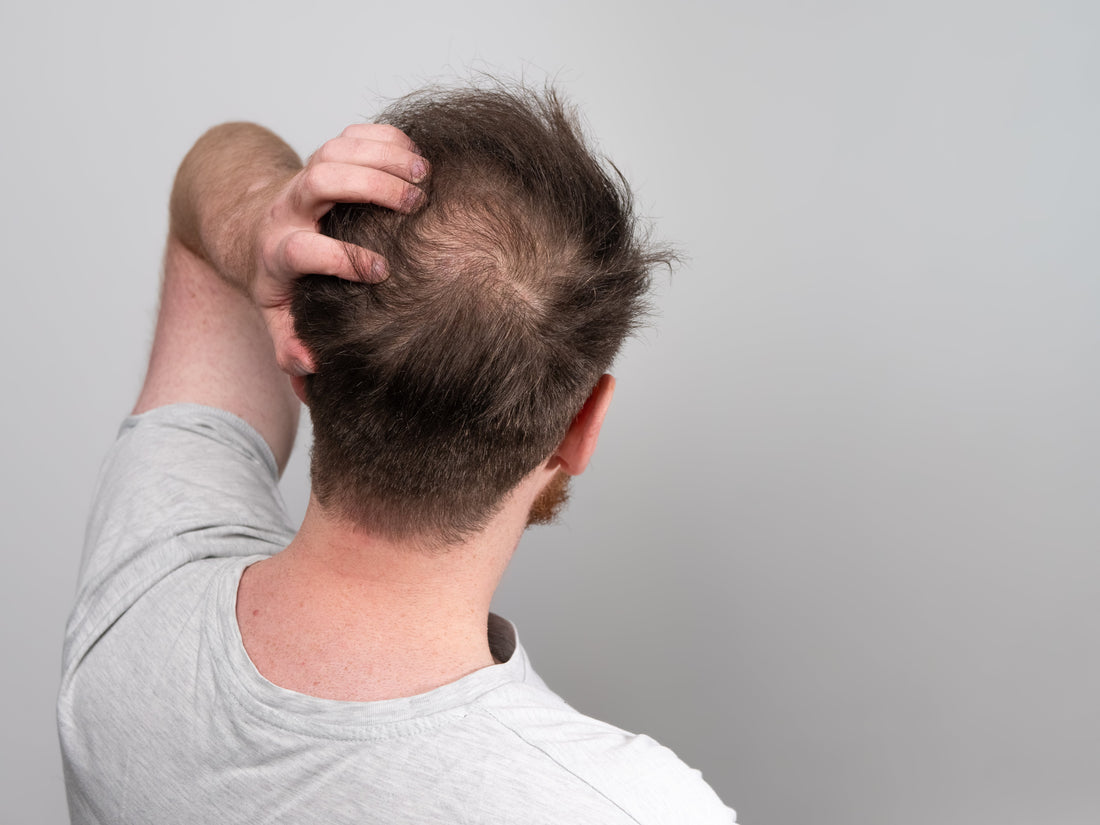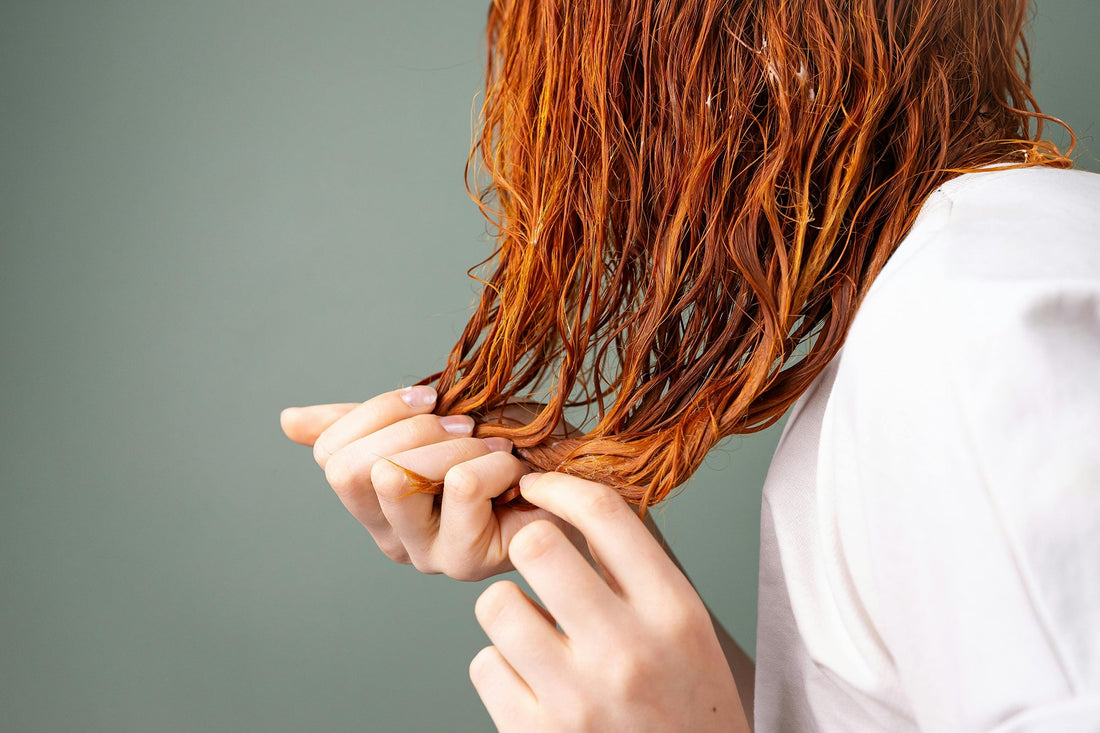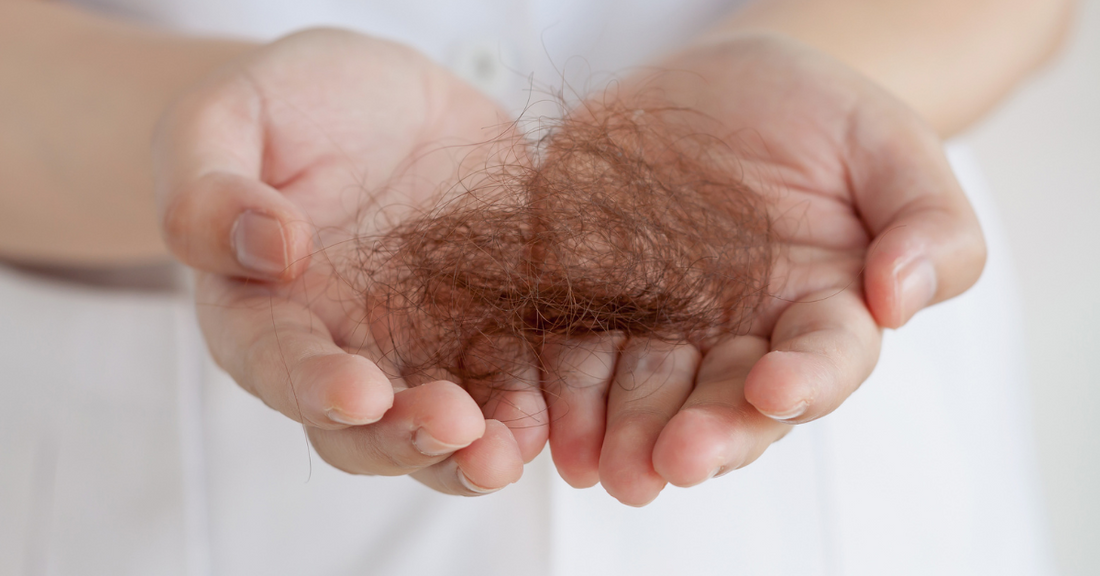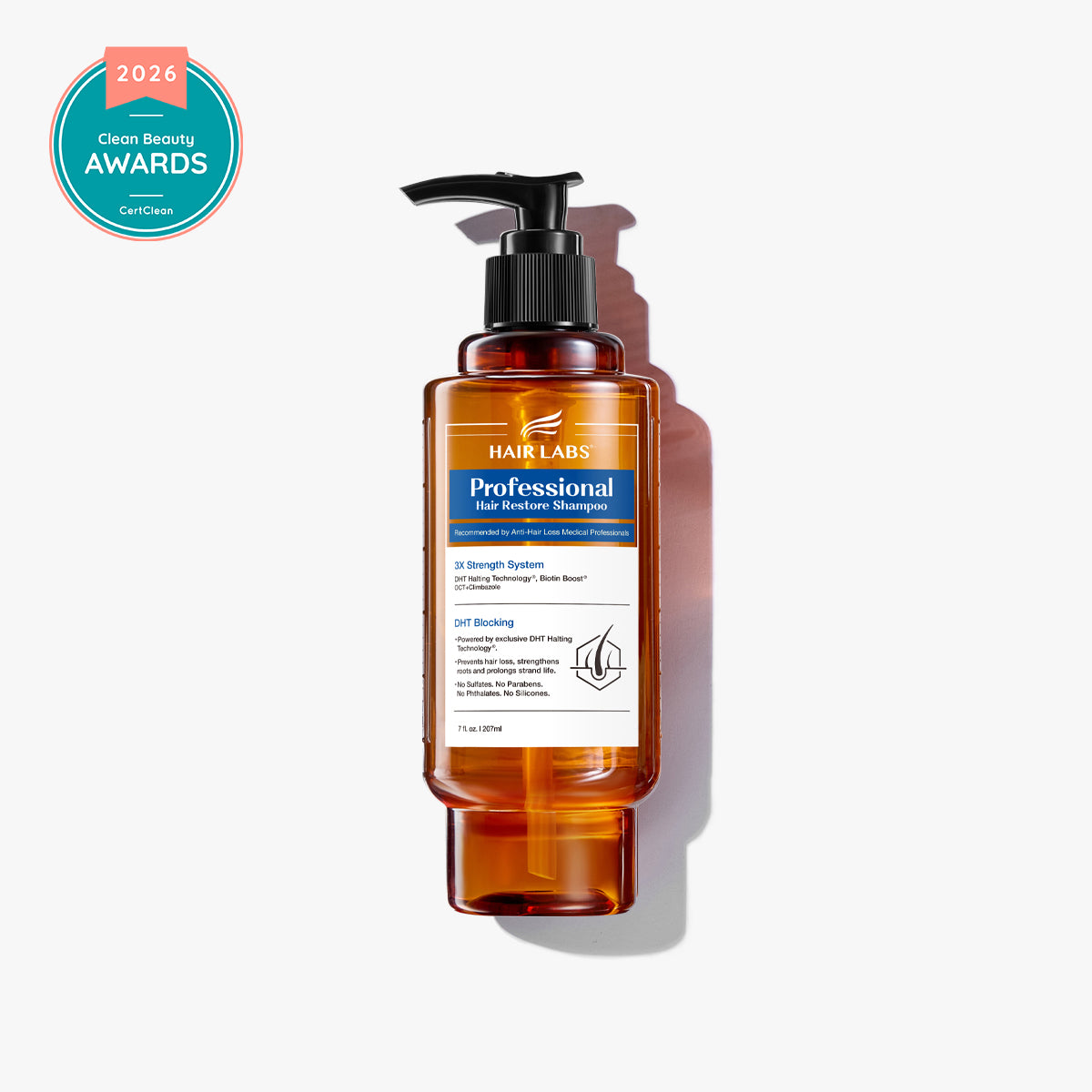Now that we are a few months out from the first patients contracting coronavirus doctors and scientists are seeing unique side effects. Many people, calling themselves the ‘Long Haulers’, have side effects that long outlive the devastating initial effects of the virus. Among those side effects is hair loss. This one has thrown many people for a loop – you’d never expect a respiratory illness to suddenly cause hair loss, but it is for many.
Here’s why.
The Hair Cycle – Why it Falls Out
All hair goes through a cycle including resting phase. Approximately 10 – 15 percent of a healthy person’s hair is in the resting phase and may cause loss of up to 100 hairs a day. It’s normal and not a reason for concern. If you didn’t see the hair on your brush or the bathroom floor, you wouldn’t even know you lost it.
Coronavirus patients, however, are losing gobs of hair at a time, far surpassing the average 100 strands per day. But experts believe it’s not due to the virus itself causing direct hair loss, instead, it’s the stress causing Telogen Effluvium or hair loss caused by a serious illness, excessive stress, or an autoimmune disorder. According to Dr. Gregory A. Poland, an infectious disease specialist at Mayo Clinic, coronavirus causes immense stress, which has caused hair loss in many.
Reasons Coronavirus Causes Hair Loss
So is coronavirus directly causing the hair loss?
It depends. In some, it could be due to the crazy high fevers the illness causes. This stresses every organ in the body out, making everything work harder, which may result in the loss of hair. Dermatologists also believe the higher cortisol levels the body releases while stressed can affect the hair’s cycles too.
If nothing else – the sheer stress the virus itself causes knowing you can’t leave your home, you may have infected other people, and may suffer financial distress due to it can disrupt the hair’s cycles too.
Does it Happen to Every COVID Patient?
So far there’s no rhyme or reason as to why one COVID patient loses large amounts of hair and another doesn’t. It could be hereditary (some people are predisposed to suffer from hair loss), changing hormones, rapid weight loss due to COVID, or just luck.
Hair loss isn’t a risk for everyone and no one will know if they’re going to suffer from it until it happens. Fortunately, there are ways to prevent and/or treat it.
Preventing Telogen Effluvium
No one predicts they’ll get coronavirus or that they’ll suffer hair loss because of it, but everyone can take care of themselves to prevent it. Your body needs proper care, with or without COVID. In fact, some experts say building up your immune system (taking care of yourself) may prevent COVID in the first place.
Implement these healthy habits to give yourself a fighting chance against COVID and telogen effluvium:
-
Eat right – Veggies and fruit most – just keep saying that to yourself. Your body needs vitamins and nutrients. Add small amounts of lean protein and whole grains, and you have a well-rounded diet that gives your body what it needs to fight whatever comes its way.
-
Sleep plenty – Your hormones (including stress hormones) rely on sleep. If you don’t get enough of it, you tax your body, which increases your stress hormone (cortisol). The average person should get 8 hours of sleep a night, but you may need more or less, judge what your body needs, and make sure you get it.
-
Use stress-reducing techniques – We are all stressed right now. Finding ways to manage it is the key. Yoga, having someone to talk to, getting out in nature, finding things you enjoy are all ways to reduce stress. If you can’t manage it, make sure you seek professional help – there’s no shame in asking for help.
-
See your doctor – Do you take prescription meds? Talk to your doctor. Some medications cause hair loss as do certain hormonal imbalances. Your doctor may run blood tests to eliminate other health issues that may cause hair loss, even if you had COVID.
Reversing COVID-Related Hair Loss
If COVID caused your hair loss, here’s the good news – it shouldn’t last forever. On average, Telogen Effluvium lasts for 4 to 6 months, gradually getting better throughout that time if you take care of yourself. Since it’s most likely due to stress, treat your body kindly during this time.
As you recover from COVID, your body needs a lot of TLC. As you can, introduce as many healthy foods into your diet as possible. Giving your body the vitamins and nutrients it needs to get it back on track is important. This takes time – give yourself grace. If you can’t handle certain foods right now, don’t force it, just make it your goal.
Also, incorporate as many mindfulness techniques into your day as you can. Your body went through a lot of stress when it had coronavirus and you may still be battling some of the effects today. Be gentle with your body – giving it what it needs. Slow walks in nature, gentle yoga, and mild exercise are all options, but listen to your body, doing only what you can handle.
Most importantly, be as gentle as possible on your hair. While you recover, gently brush your hair – don’t pull. Avoid the use of excessive (or any) chemicals or harsh treatments. This isn’t a time to color or highlight your hair or even to use hot tools, like a straight iron. Let your hair be natural for the time being, focusing on your health and letting your hair cycle get back to its norm.
Bottom Line
Telogen Effluvium happens to thousands of people – and not just those with coronavirus. Give your body what it needs and you’ll see it improve over time. Don’t let the hair loss stress you out further or it will prolong telogen effluvium, which is the opposite of what you desire. Take care of you during this trying time and know that better things are yet to come.







